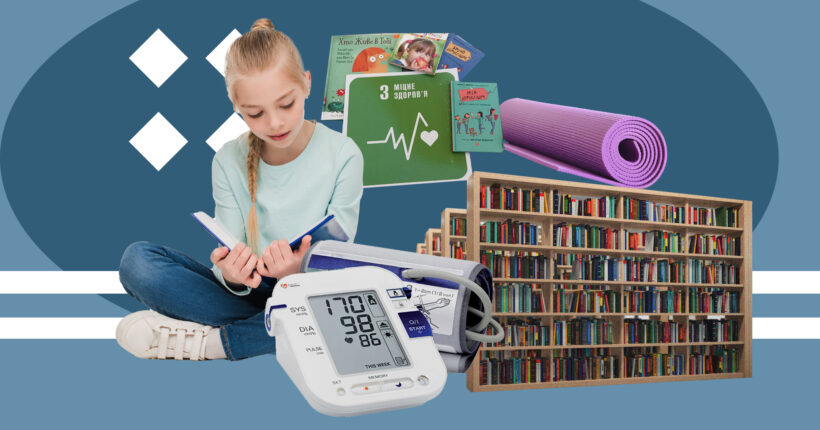
What is the problem?
War provokes a large number of risks in the public health system. These are injuries and their consequences, inadequate provision of maternal and child health, challenges to food security, chemical, radiation, and nuclear threats, risks of spreading infectious diseases, increasing cases of chronic and non-infectious diseases, deterioration of psychosocial health, says Ukraine's Deputy Minister of Health Ihor Kuzin. He also states that disease prevention is not popular among the Ukrainian population, which worsens the general situation.
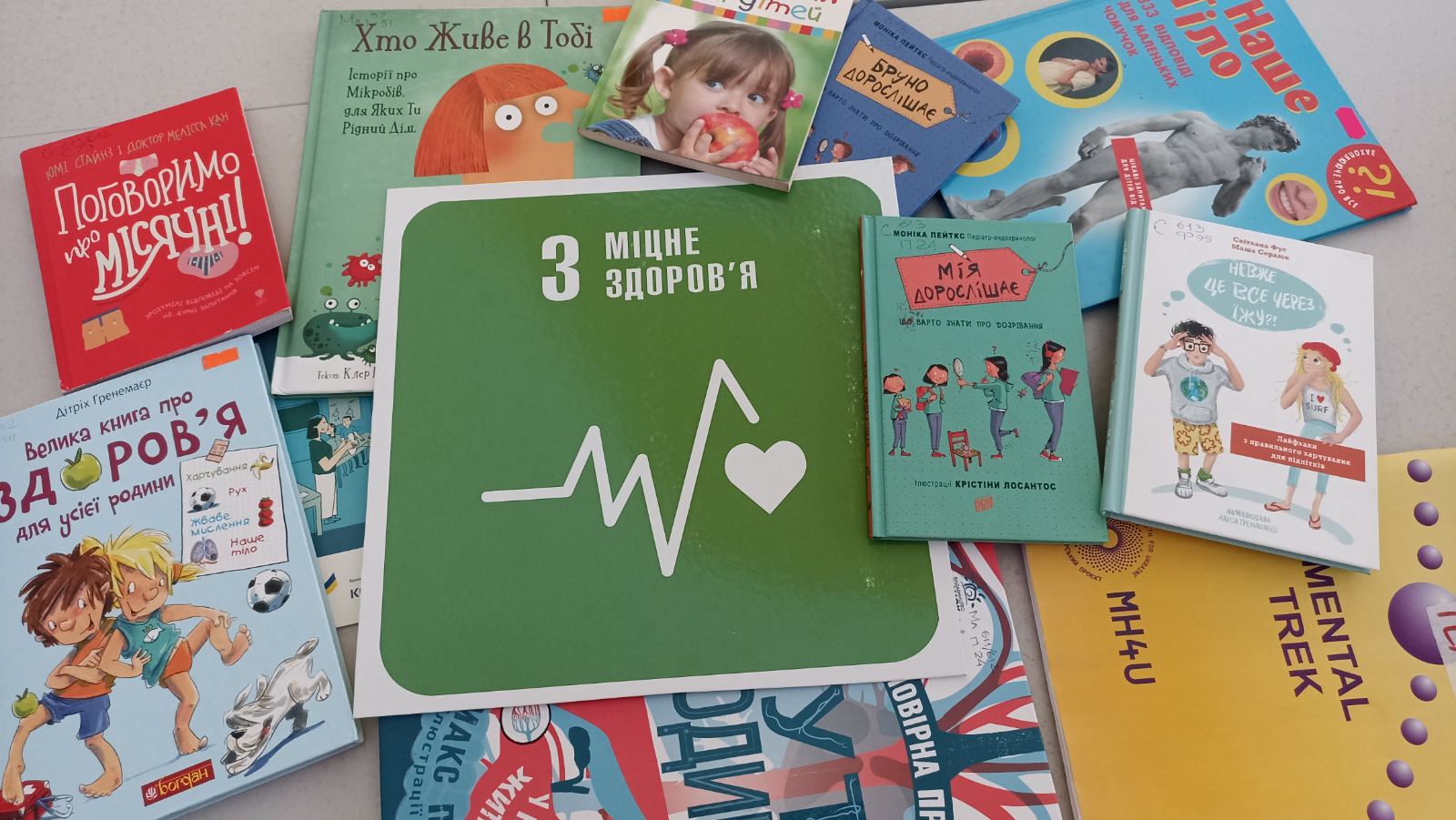
Photo: Books received within the framework of the Healthy Libraries pilot project
What is the solution?
Libraries can make communities healthier
Engage different players in supporting public health, even libraries.
Ukraine will be able to reduce the risk of an increase in chronic and non-communicable diseases through the joint efforts of state institutions, civil society, and in general, due to the application of a cross-sectoral approach. The Charity Foundation Library Country, which implements the Healthy Libraries project with the support of the Ukrainian-Swiss project Let's Act for Health, is convinced. The pilot launch of this solution in 20 communities has already shown how it is possible to prevent health issues through the library network effectively.
How did this solution come about?
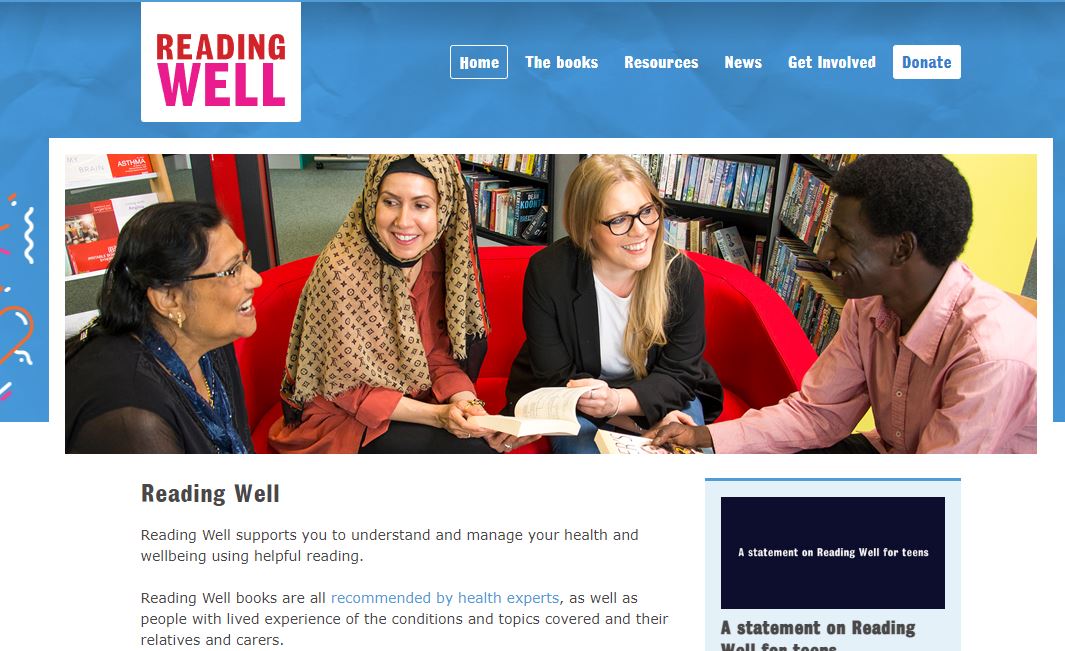
Photo: Screenshot from the main page of the British program Book by recipe
Since 2015, the Library Country charitable foundation has been working on developing and assisting libraries in Ukraine. In 2017, the foundation's employees learned about the nationwide program Reading Well, which was launched in Great Britain in 2013. As part of the project, British experts have developed lists of books that tell how to live with various health conditions, how to prevent health issues, and how to take care of yourself. Today, these books — and among them, for example, non-fiction for adults and children's editions — can be found in every British library. In addition, the libraries began to hold educational events, lectures, and master classes, and the premises themselves were turned into inclusive ones.

Photo: Books offered to patients within the Reading Well program
The executive director of the charitable foundation, Liusiena Shum, notes that this involvement of libraries in the topic of disease prevention has had a powerful effect on the health care system: 90% of medical professionals estimated that books helped patients support themselves and independently cope with the symptoms of non-infectious diseases, 81% of respondents believe, that the book helped them better understand their health needs.
This is how the idea of Healthy Libraries in Ukraine appeared, and already in 2022, the pilot project was operational in 20 communities of four regions: Rivne, Lviv, Poltava, and Dnipropetrovsk.
How did Healthy Libraries appear in Ukraine?
To date, the Healthy Libraries project has already spread to 27 communities: last year, there were 20 book collections, and this year — 33.
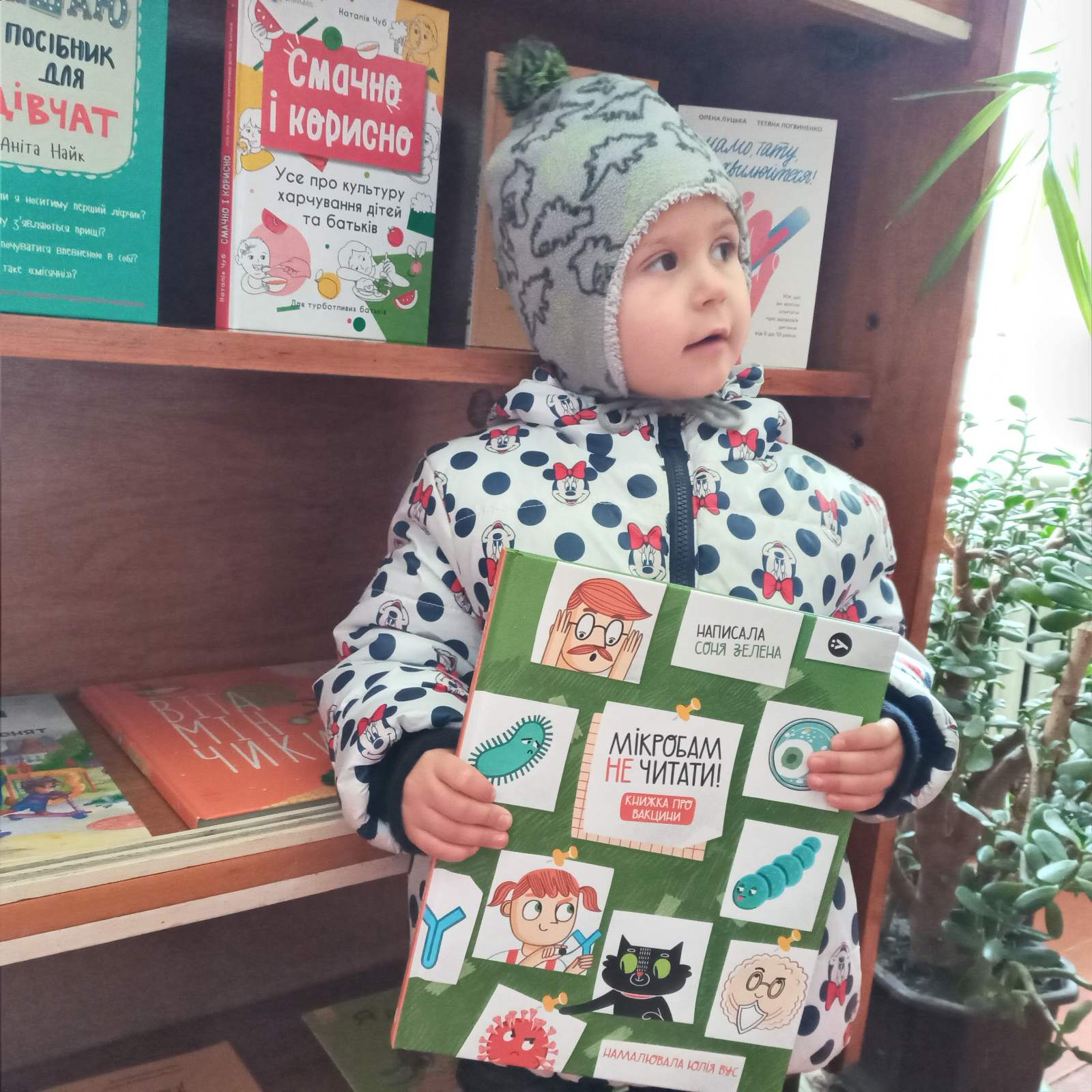
Photo: One of the readers of the new books of the Healthy Library
What these libraries got:
- the possibility of conducting lectures on medical and preventive topics with medical specialists for library workers and readers;
- new modern popular scientific books about the importance of physical activity, proper nutrition, psychological health, books for adults, as well as for children — more than 1,200 books in total;
- sports equipment: Nordic walking sticks, yoga mats, jump ropes, fitness balls, health discs, dumbbells;
- medical equipment: tonometers, pulse oximeters, glucometers, massage mats, spring massagers, etc.;
- guidelines for how librarians should work with this topic in their communities.
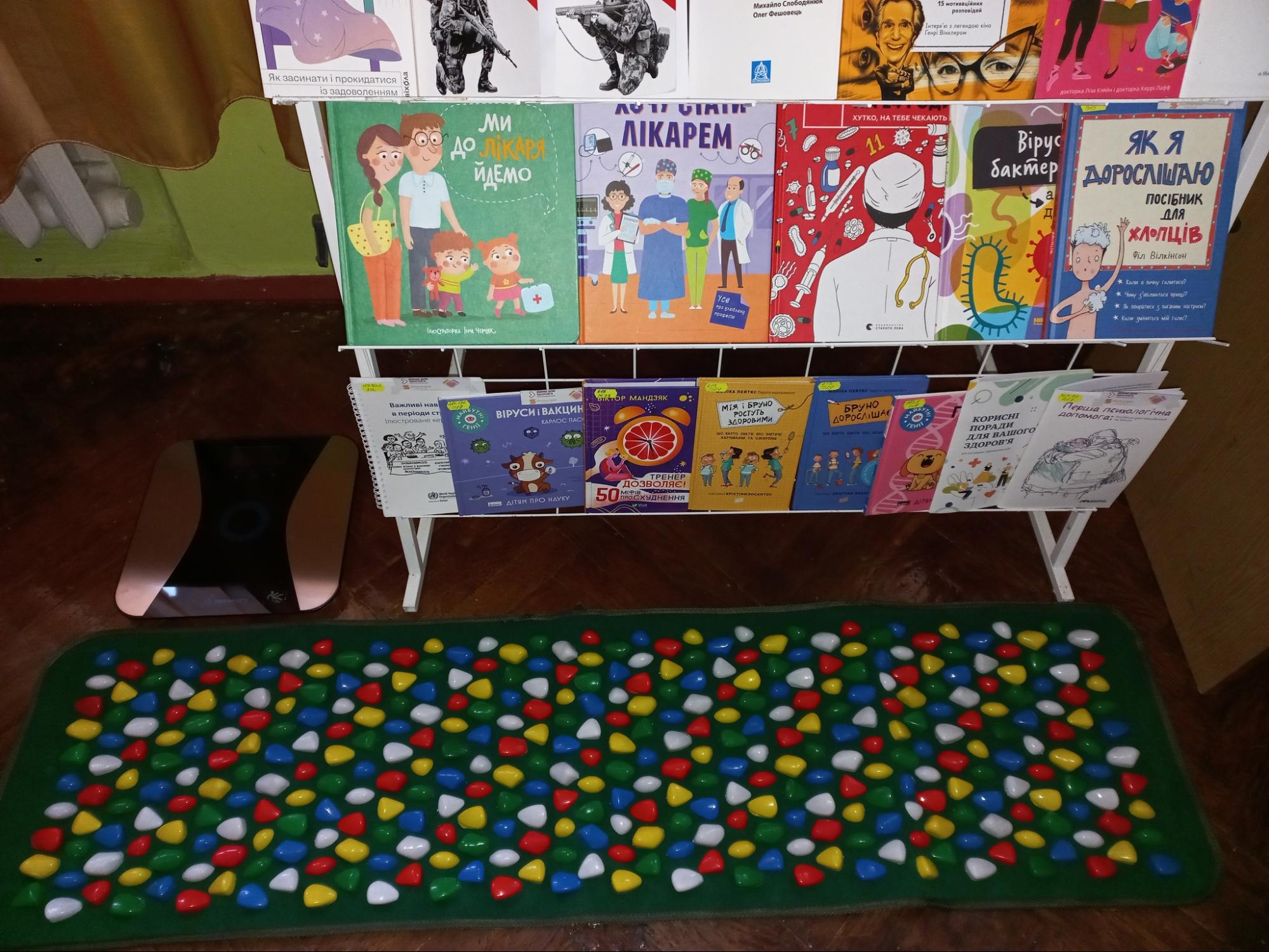 Photo: The massage mat in the Zdolbuniv library was received as a part of the project
Photo: The massage mat in the Zdolbuniv library was received as a part of the project
Libraries have arranged health corners in their spaces, where all their new acquisitions are concentrated, as well as information about the health care system in the community (hospitals, schedule, and announcements), posters about books, and announcements of health-related events.
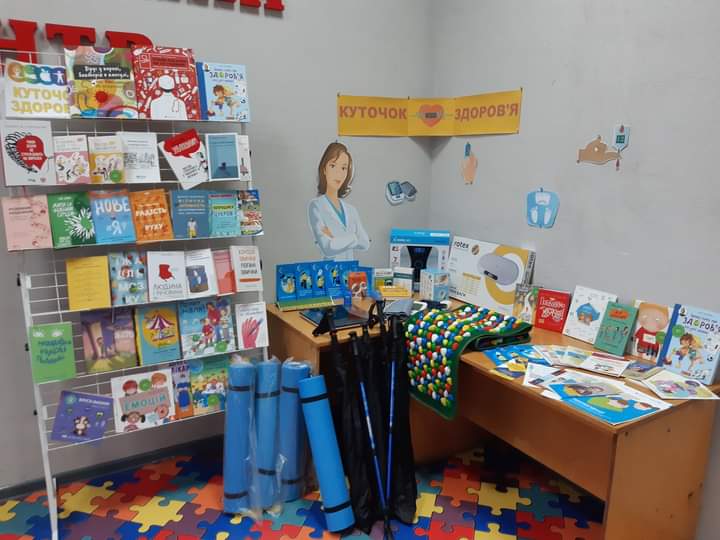
Photo: Libraries have been supplied with such sports equipment thanks to participation in the project
What did this solution do?
Residents of communities and resettlers were given the opportunity to:
- use medical devices and services in libraries free of charge: measure blood pressure, oxygen, and sugar levels and body mass index,
- attend free sports classes in libraries — Nordic walking, yoga, fitness. Libraries engage volunteer trainers who lead the appropriate activities.
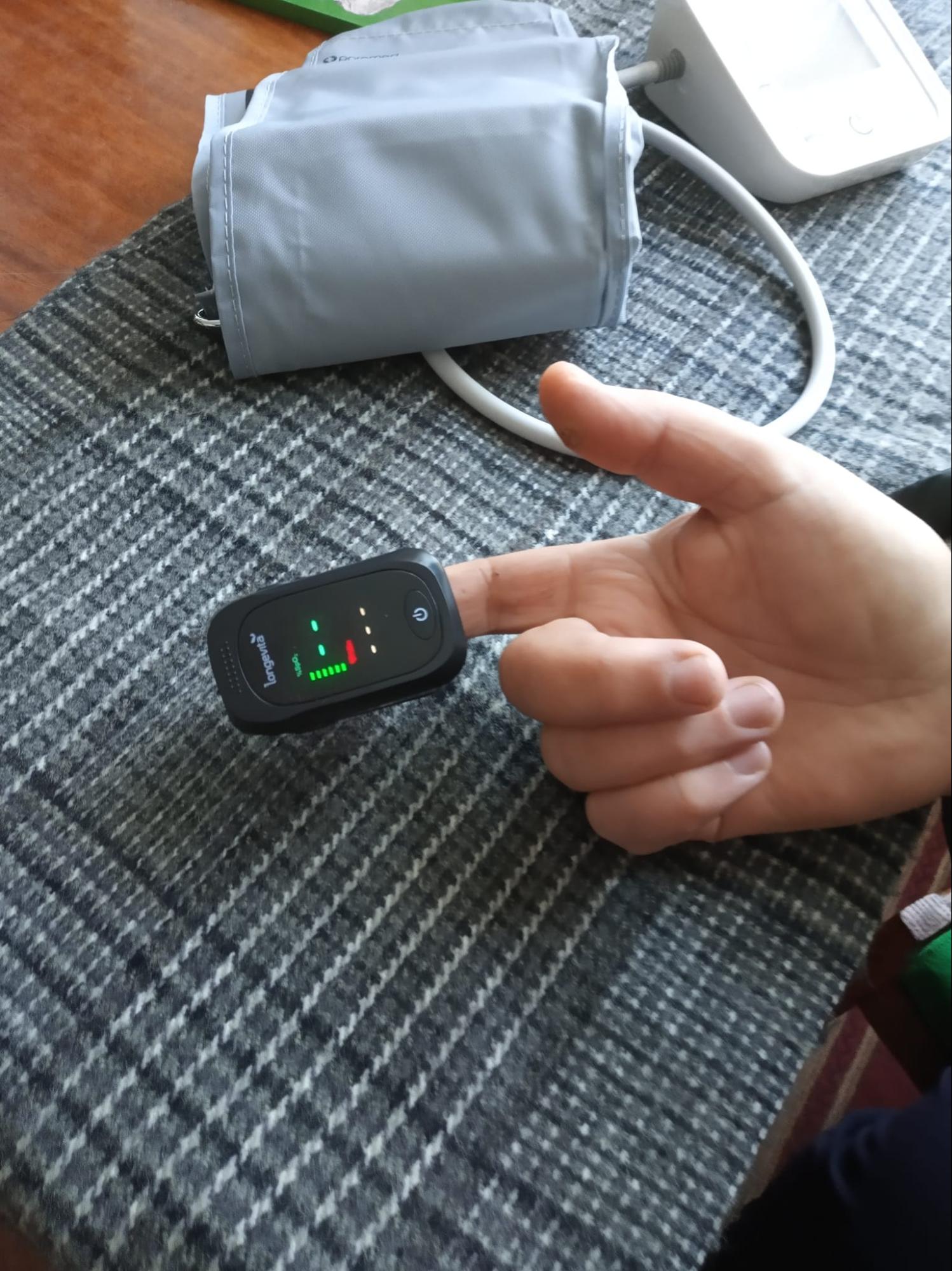
Photo: Medical equipment is in demand among readers in the Dyadkovytska library in the Rivne region
Libraries received a new dimension of activity. Due to the full-scale war, many such institutions have already been transformed: becoming spaces for collecting humanitarian aid or supporting internally displaced persons. Now they can combine their main activity with promoting a healthy lifestyle and disease prevention.
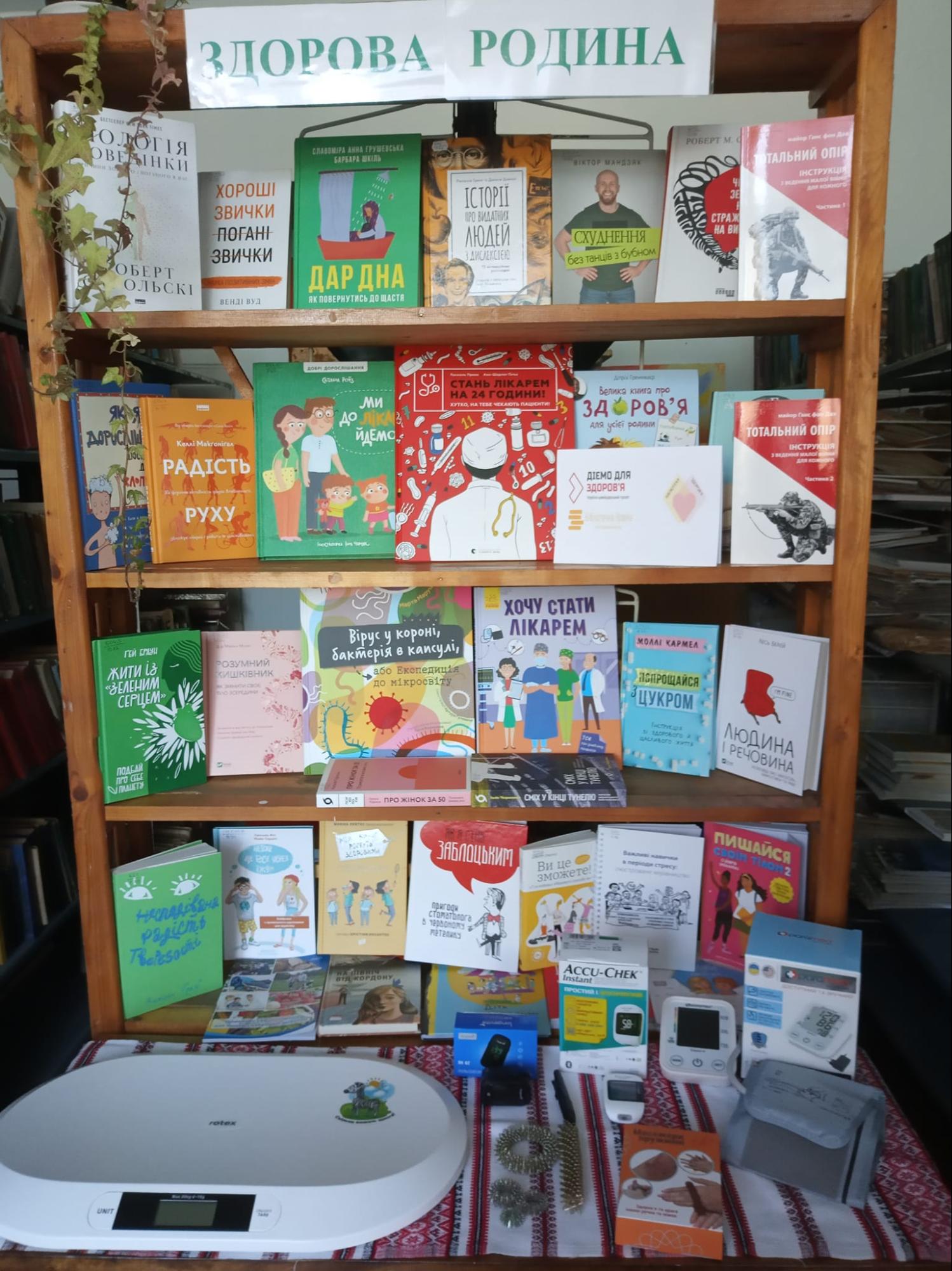
Photo: Thematic corner in Dyadkovytska library was created thanks to the project
Even receiving new books is already quite a result because, in the conditions of martial law, libraries cannot spend money on the purchase of books. Accordingly, their funds are replenished only at the patrons' expense and thanks to cooperation with the authors of new editions.
How does this solution work?
Furor in the Dykanka Public Library
The Dykanka Public Library is one of the participants in the pilot project. The director of the library, Nataliia Kucheryaeva, shared with Rubryka: "I see that we are doing a very, very important thing at our local level. We feel the importance of this topic, especially now, during the war, because people are confused. They often even forget about their health, which still needs to be taken care of. Prevention is very important now, and people need to be reminded to monitor their condition."
The experience of the library's involvement in health promotion has been very successful. It has shown that it is psychologically easier for community residents to come to the library to measure their blood pressure or determine their body mass index than to visit a doctor's clinic.
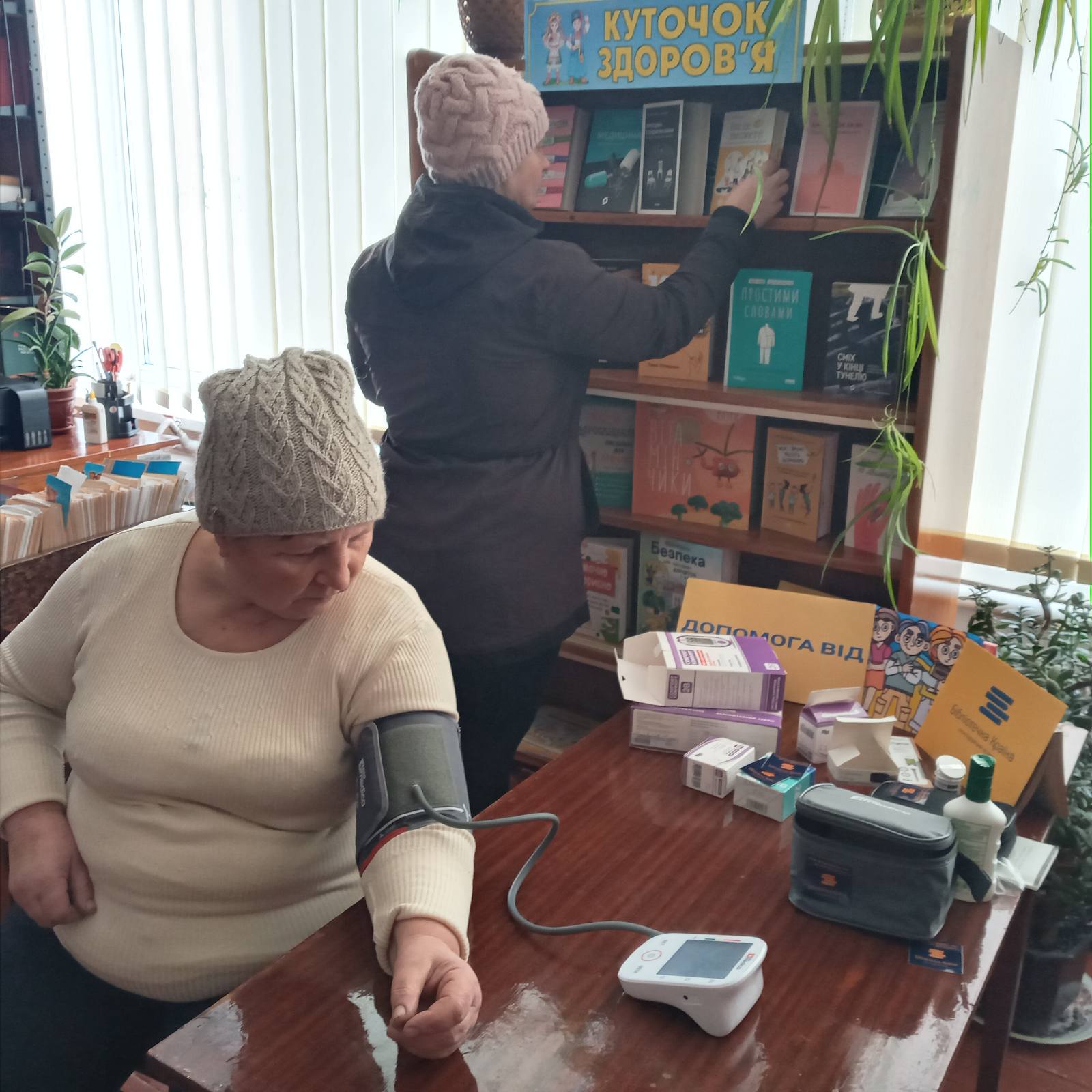
In the photo: Librarians share that older readers most often use medical devices
Older library users willingly use medical equipment in the library — precisely because it does not have the atmosphere of a doctor's appointment. Massage devices were also appreciated. Kucheryaeva said that some women come to the library several times a week to exercise because they feel a positive effect on their health.
Due to participation in the project, the library received 60 books on physical and mental health. Kucheryaeva is happy that the books are very diverse, she says: young people are now interested in a healthy lifestyle, and children perceive the vivid presentation of the material very well.
Sports equipment came in handy for local schoolchildren. The library even holds separate classes. After all, during the war, learning in many educational institutions is mostly distance learning, and the library, in a new role, helps to socialize these children. Users like dumbbells, jump ropes, and especially health discs.
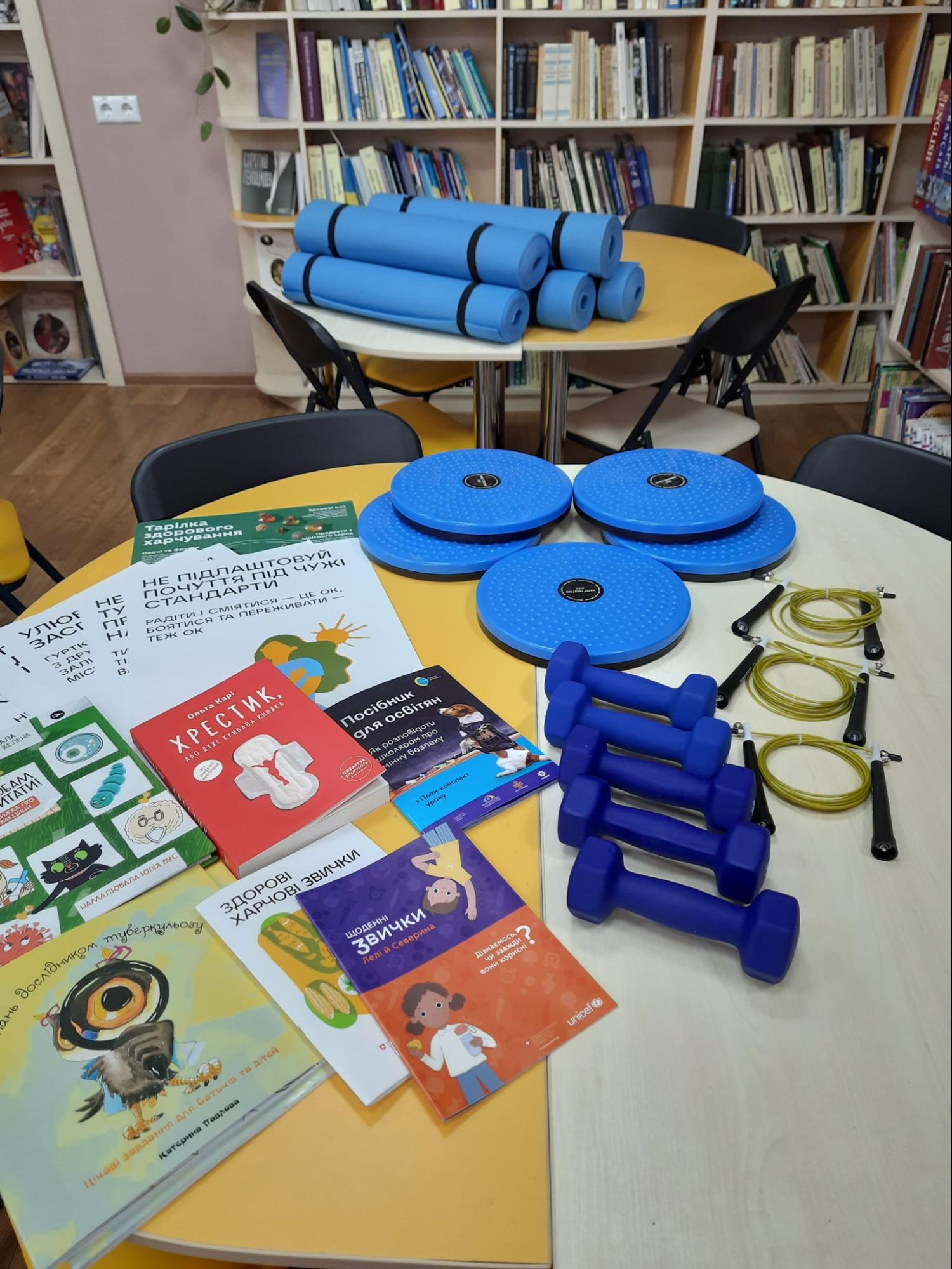
Photo: Sports equipment of the Dykanka Public Library became another attraction for visitors
According to Kucheryaeva, children are very interested in coming to the library and not just taking a book home or participating in some activity but also lying on the floor on mats, taking dumbbells, and jumping ropes. The library has become a unique center of leisure and physical activity.
It also held online and offline presentations and meetings with book authors and medical specialists. Various trainings were also held at the institution, such as on providing medical assistance. Kucheryaeva says they were so successful that the audience had to be divided into several groups.
The director of the Dykanka Library emphasizes that meetings with specialist doctors are very useful because it is a conversation in a relaxed atmosphere. It is much easier to ask questions than during regular doctor's appointments. "Of course, these were not full-fledged consultations, but people received some answers to their questions and even certain recommendations, and then they contacted the hospital directly. It all started with the library."
During the work in the project, a new goal appeared in the library — leadership in the community in the prevention of non-communicable diseases.
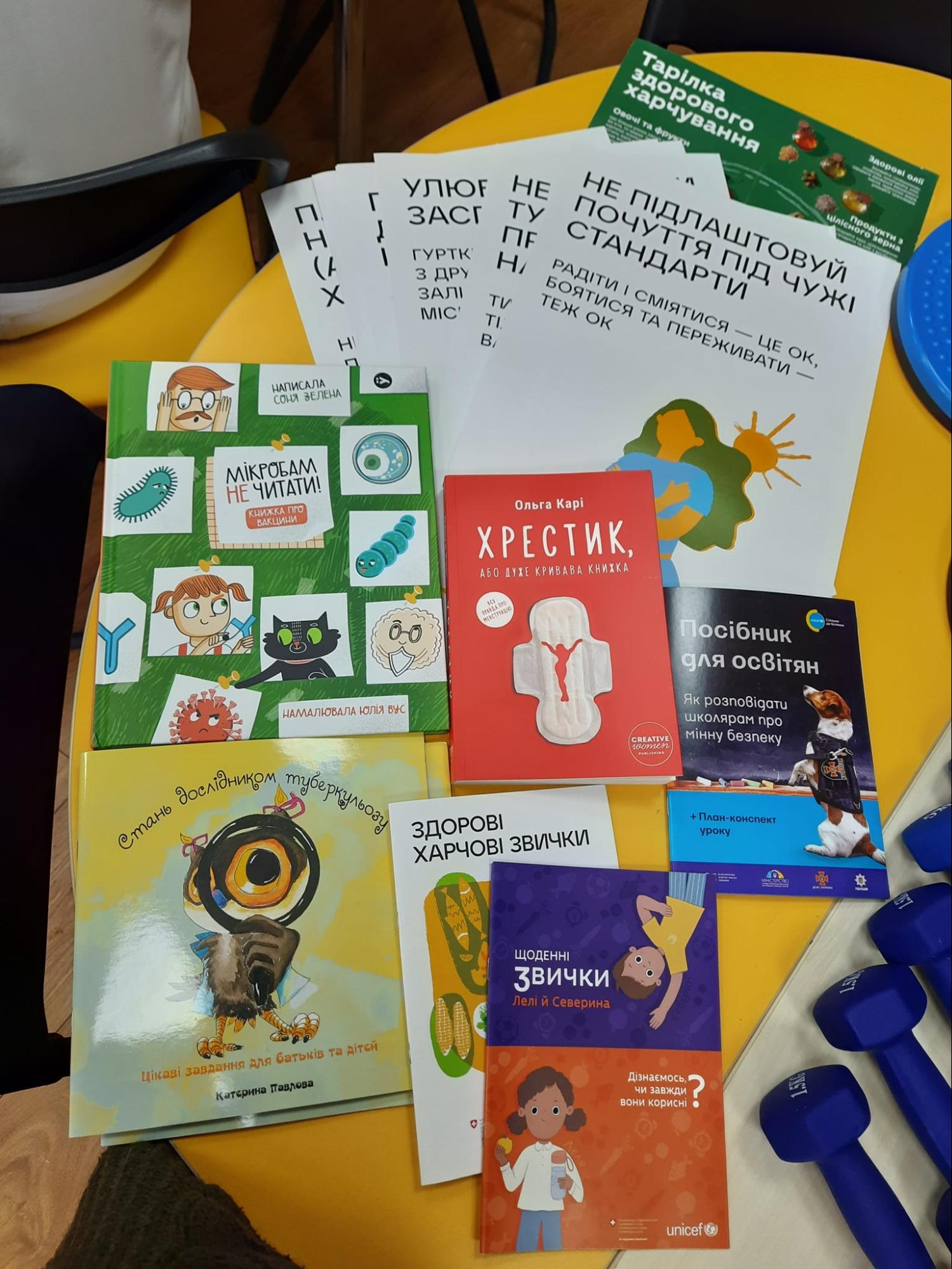
Photo: As part of the project, the Dykanka Public Library received 60 new books
"We learned a lot ourselves. I hope we are quite useful to the community and different age categories of the population, so we hope to continue working in this direction. We like what we do and strive to help people even more," Kucheryaeva shared with Rubryka.
How can this solution be scaled?
The Healthy Libraries project continues. Even more community libraries in Ukraine will be able to join it.
"We plan to scale this experience throughout Ukraine so that librarians, using this pilot experience, can systematically work and improve the health of the residents of their communities," said Shum.
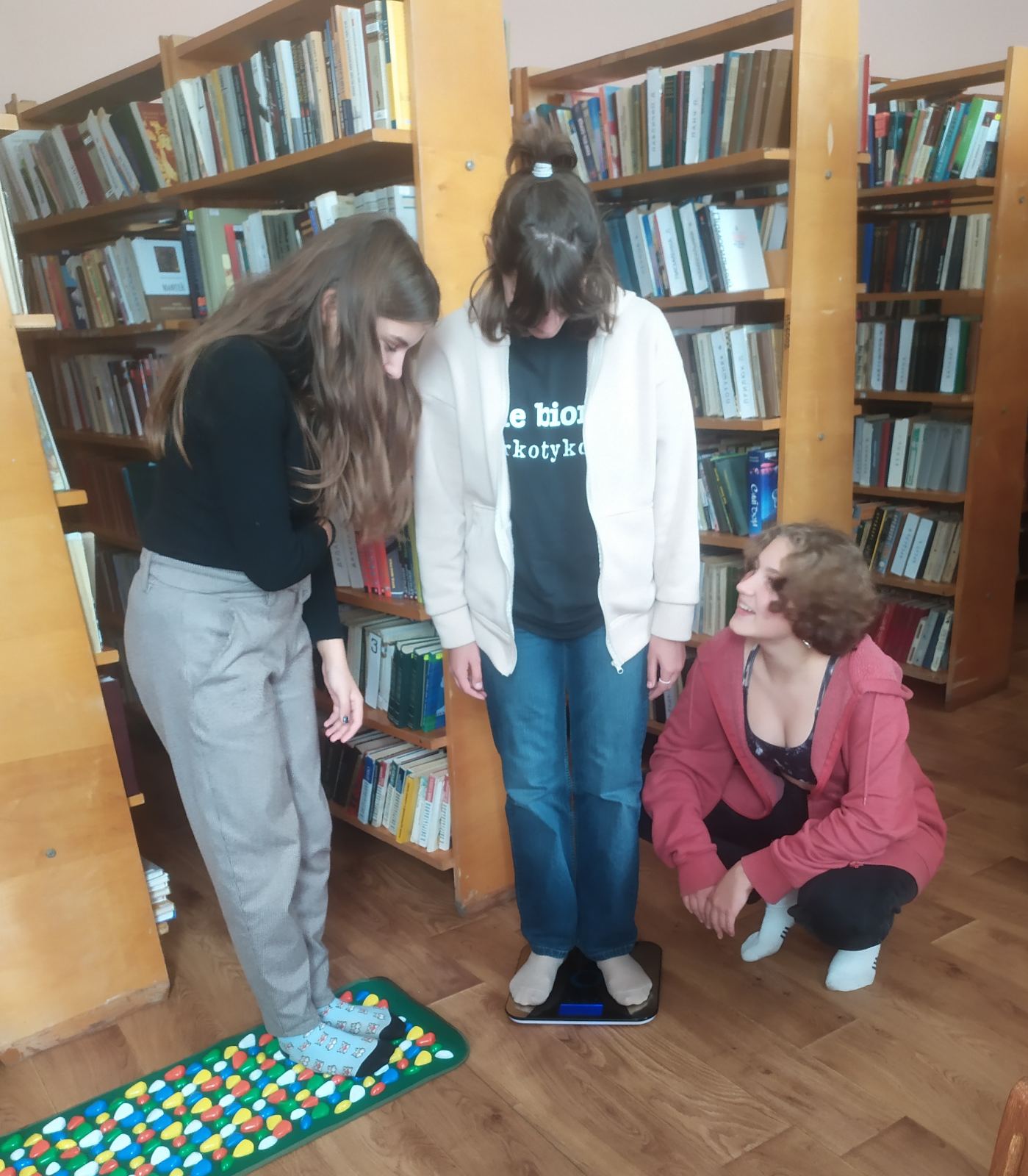
Photo: Medical supplies in actively used in the Kotelevska Central Library in the Poltava region
Here, the methodology developed by the project leaders and posted on the websites of "Act for Health" and the Library Country charity fund will be helpful for libraries.
According to Maryna Braha, coordinator of communication issues for behavior change of the Ukrainian-Swiss project "Act for Health," the best results are achieved by those communities that combine the efforts of various stakeholders to improve the health of the population: local self-government, education, health care, culture, public sector, and also those where the representatives of local self-government are the drivers of a healthy lifestyle. For example, the Zdolbuniv community in the Rivne region already, on its initiative, conducts an in-depth assessment of the state of physical activity of the community residents to implement effective solutions in the future.
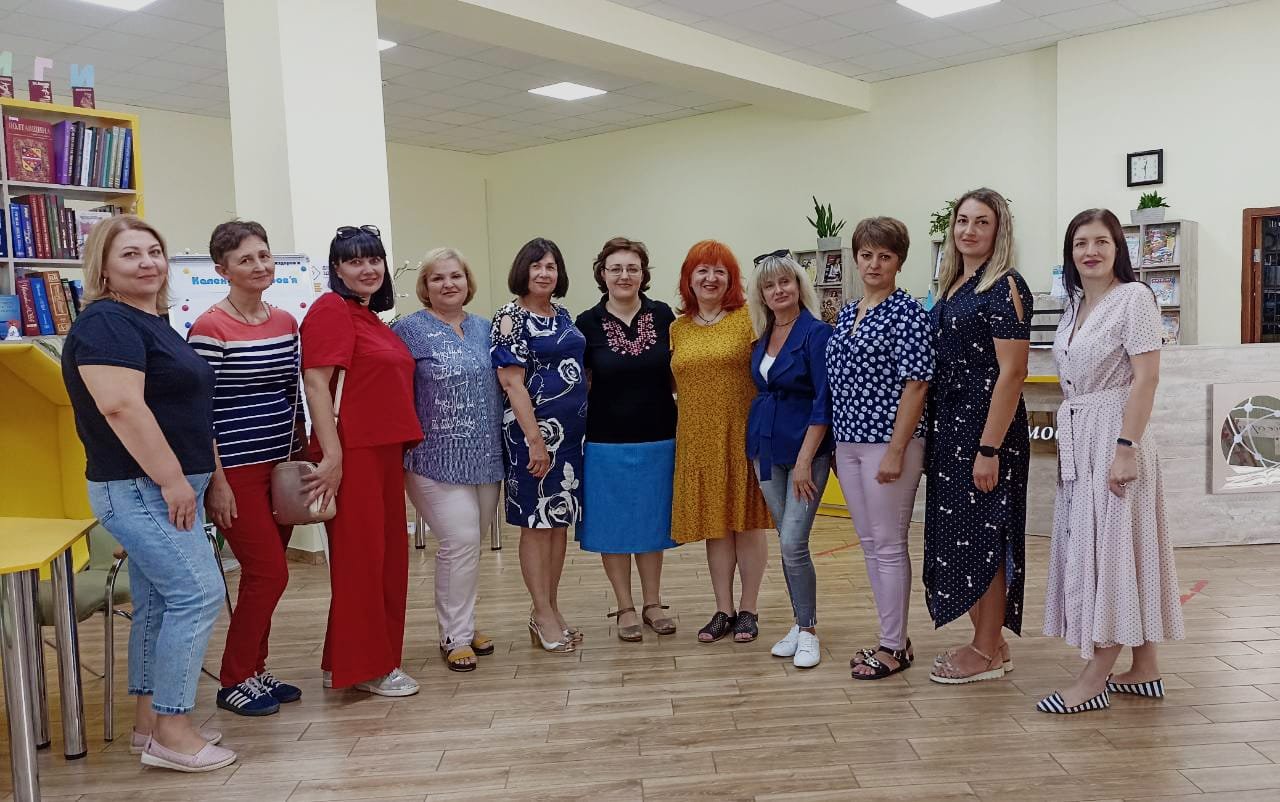
Photo: Project participants held a project meeting in the Poltava Region
Ihor Hnatusha, the head of the Health Care platform of the All-Ukrainian Association of United Territorial Communities, the head of the Komysh-Zoryan settlement community, noted that such successful innovations should definitely be implemented in all communities, and their association will be ready to adopt this experience. In addition, he believes such initiatives are very important for uniting people in communities.
"Libraries should become drivers of disease prevention and promotion of a healthy lifestyle. On the part of the Ministry, we support this initiative," said Deputy Minister of Health of Ukraine Ihor Kuzin.
Photo provided by Library Country charity fund








